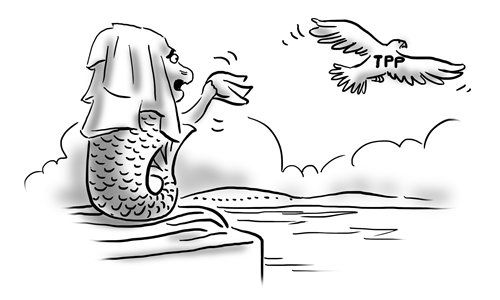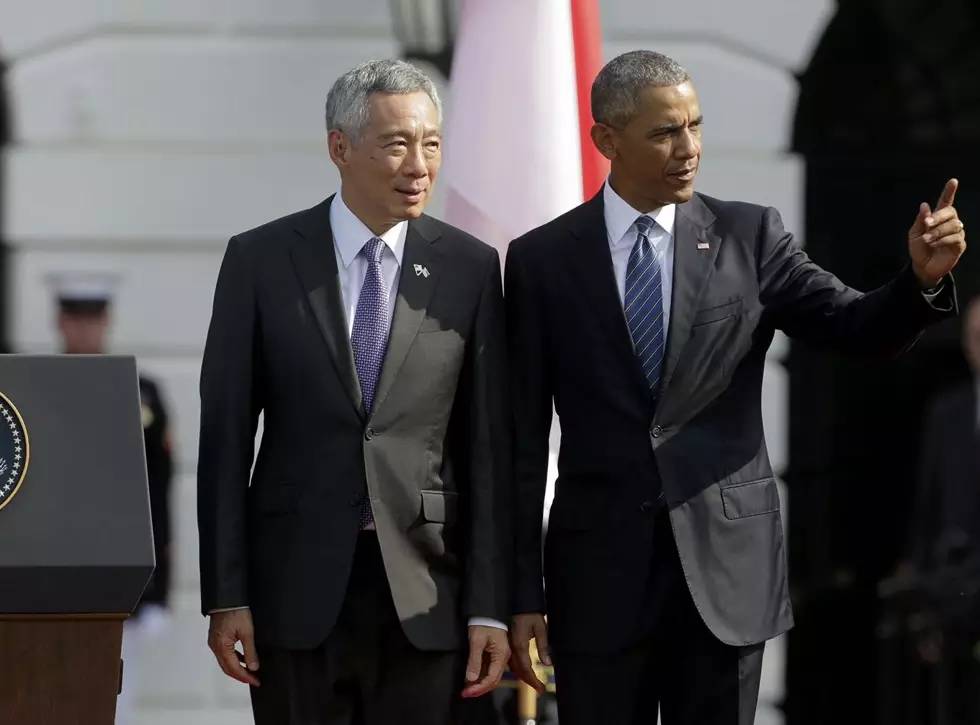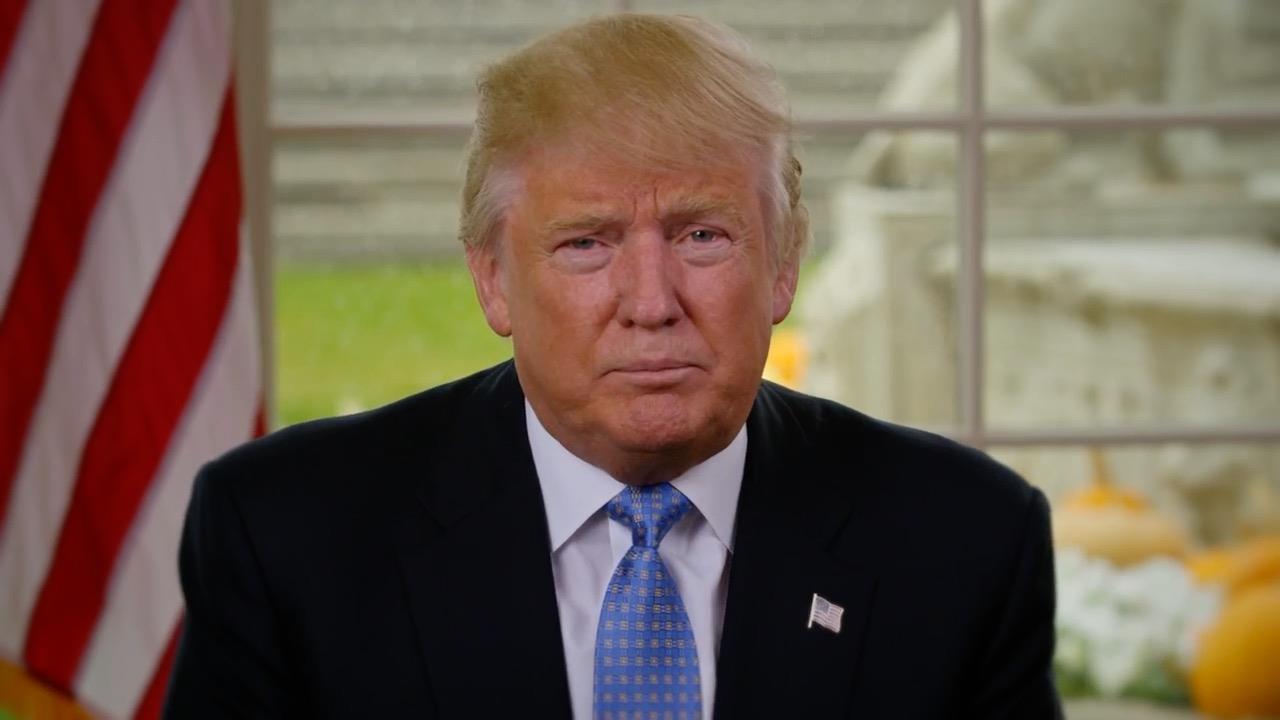To the surprise of almost everyone, Donald Trump has been elected as the president of the US. Governments around the world, especially US allies, are concerned about Washington's foreign polices under Trump's leadership. Their worries mainly stem from Trump's unpredictability and his isolationist tendency in particular.

鱼尾狮(新加坡的象征)无奈挥别TPP(跨太平洋伙伴关系协定)
The Trump team laid out the framework of his initial policies on November 11 to alleviate public concerns, but it seems to have failed to disperse suspicions.
As a strategic partner of the US, Singapore is increasingly worried about the US isolationist and populist tendency, and this may shape the US-Singapore relationship over the next four years.
Trump has won the election with his "Make America Great Again" slogan. It is highly likely that Trump will turn to protectionism and isolationism to boost the comprehensive strength of the US.
Singapore is already concerned about its future trade relations with the US even before Trump officially takes office. Heavily relying on free trade, Singapore has attached great importance to the Trans-Pacific Partnership (TPP), but it is regarded by Trump as a horrible deal that kills jobs of Americans.

2016年8月,新加坡总理李显龙(左)访美,与美国总统奥巴马(右)举行会谈,共同强调TPP的重要性。
The president-elect announced that the US will quit the TPP on his first day in the White House. The decision has dealt a heavy blow to Singapore which is keen on pushing the deal forward. Singapore's Prime Minister Lee Hsien Loong pushed Washington to approve the TPP during his US visit in August. Trump's decision to quit the deal has already cast a shadow on future US-Singapore economic and trade relations.
Given Trump's trade protectionist tendency, whether the US will turn to more populist trade and investment policies after it quits the TPP is still unknown. This will add more uncertainties to global trade and the Asian economies, and meanwhile it is highly likely to impose heavier burdens on Singapore's economy, which is already shrinking. Obviously, the next four years will see extensive and deep dialogues and clashes between Singapore and Trump in trade policy.
Diplomatic and security ties are another dimension of the US-Singapore relationship. The US plays a key role in Singapore's foreign activities and regional strategies. Singapore attempts to strike a balance between the US and China in regional affairs, and is a key base for the US military presence in the region. It occupies an important position in the regional defense system as well. Although Trump revealed some of his ideas on the role the US and its allies should play in a regional defense system, such as that South Korea and Japan should bear more defense costs and responsibilities, he has not introduced concrete defense policies so far.

2016年11月21日,美国当选总统唐纳德·特朗普通过社交媒体发布视频,简要介绍了他入主白宫后百日内将推出的部分政策,其中退出TPP是首要任务。
The future US-Singapore security and defense relationship should be analyzed from the following aspects - with the big picture of China's rise and Trump's pledges to strengthen maritime strength, whether the US will continue its strategy of rebalancing to the Asia-Pacific region, whether Singapore will agree to have closer security ties with the US and bear more defense costs, and whether Trump will attach great importance to Southeast Asia like Barack Obama.
Some US scholars believe that Trump will not pay much attention to Southeast Asian countries. The future orientation of US-Singapore security ties depends on Trump's Southeast Asia policy and the interactions between the two sides.
(本文作者系察哈尔学会研究员,原载于《环球时报》英文版,图片来源于网络)